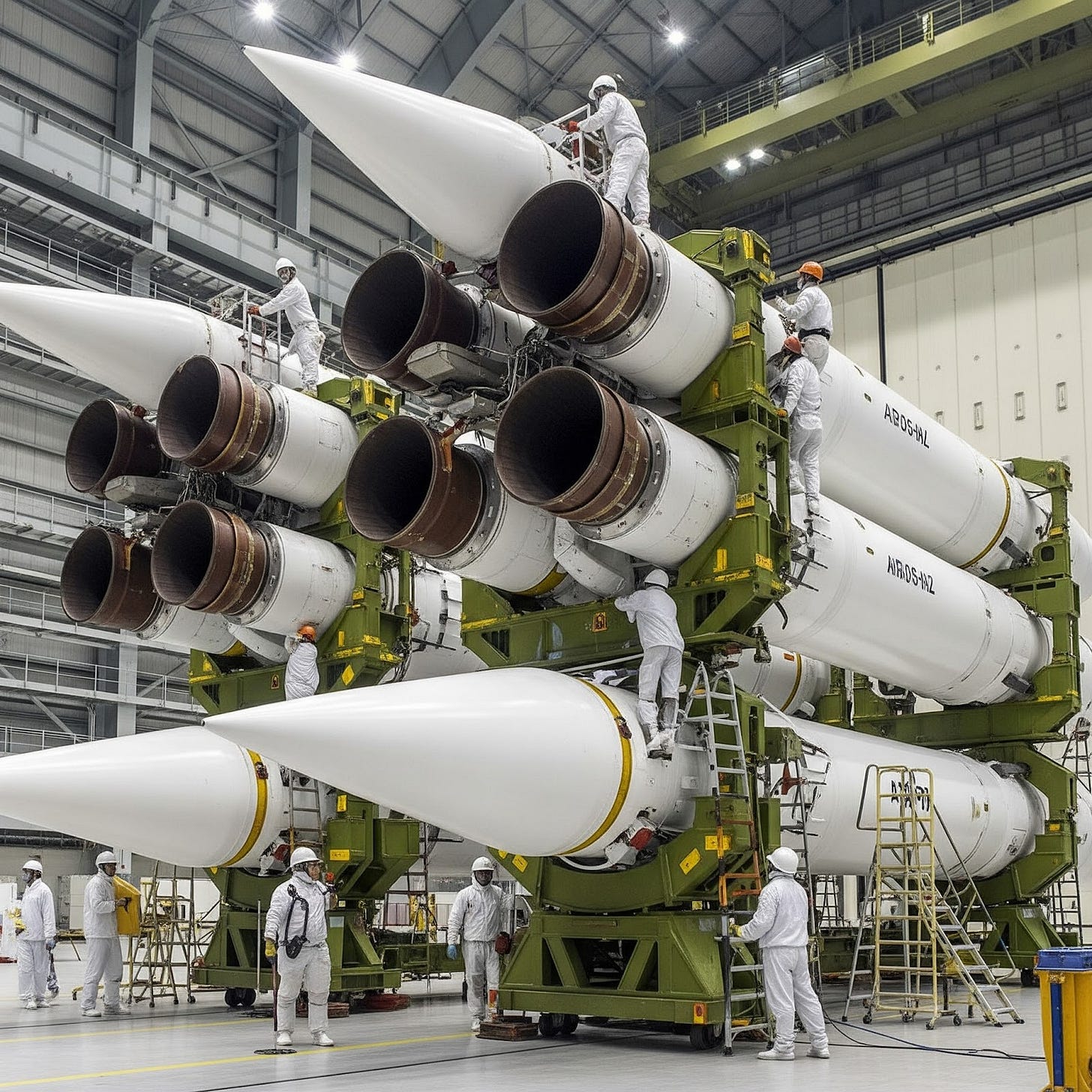India-Brazil: A Deepening Strategic and Cultural Alliance
Exploring Military, Economic, and Cultural Collaborations Between Two Prominent BRICS Nations
Strengthening Ties: The Evolving India-Brazil Partnership
Delve into the deepening strategic and cultural alliance between India and Brazil as they expand their military cooperation, enhance economic ties, and celebrate shared cultural values. Discover the implications of this partnership on the global stage and the enduring connections that unite these two vibrant democracies.
India-Brazil: A Deepening Strategic and Cultural Alliance
Deepening India–Brazil Strategic Partnership
Brazil expressed keen interest in procuring India’s Akash surface-to-air missile system and Agni series ballistic missiles, marking a significant expansion of defence ties ahead of PM Modi’s July 2025 BRICS summit visit. High-level exchanges have surged: three four-star Brazilian officers undertook training in India over the past year, and both navies, operating Scorpene submarines, are exploring joint maintenance and training programs.
Brazil and India first established diplomatic relations in 1948 and elevated them to a Strategic Partnership in 2006. They collaborate across BRICS, G20, IBSA, and multilateral bodies like the UN and WTO. Defence cooperation is facilitated through institutional mechanisms, including Joint Defence Committee meetings, 2+2 Political-Military Dialogues, exchanges of over 130 officers between each other’s training institutions, and joint naval exercises.
The recent news regarding Brazil's interest in acquiring the Akash and Agni series missiles from India marks a pivotal moment in the evolving relationship between these two prominent BRICS nations. This development goes beyond a mere transaction of military equipment; it represents a profound alignment based on shared cultural values, historical connections, and an increasing acknowledgement of India's rising influence on the global stage.
As both countries navigate the complexities of international relations, this cooperation could redefine their roles within not only the BRICS framework but also the broader geopolitical landscape. The potential impact of this alliance on the global balance of power cannot be overstated. Furthermore, the collaboration signifies a mutual understanding of the importance of security and defence in fostering national sovereignty and stability. Thus, the burgeoning partnership encapsulates a vision for a more interconnected future.
Key Aspects of the India-Brazil Relationship
India and Brazil, recognised as two of the world's largest democracies, share a multifaceted relationship that encompasses political, economic, and cultural dimensions. As founding members of BRICS, these nations have utilised this platform to collaborate on global issues, advocating for a more equitable multipolar world order. Their engagement extends beyond BRICS to include organisations like IBSA, which fosters dialogue among India, Brazil, and South Africa, as well as the G4, which seeks reform of the United Nations Security Council. Such collaborations underscore their commitment to South-South cooperation and a rebalancing of global power dynamics. Economically, bilateral trade between India and Brazil has been on a steady upward trajectory, with growing partnerships in agriculture, renewable energy, and pharmaceuticals. Culturally, there exists a mutual fascination with each other's vibrant traditions, music, and cinema, which further enriches the bond between their peoples.
Beyond BRICS: Cultural and Spiritual Harmony
Beyond geopolitics, Brazil’s indigenous Rama tribe—drawing inspiration from Hindu Sanatani ethics such as ahimsa (non-violence) and satya (truth)—has integrated Sanatan Dharma into their rituals and community life. One of the most striking facets of the India-Brazil relationship is the deep cultural and spiritual connection that transcends formal diplomatic ties. Reflecting a profound resonance that speaks to shared human experiences and beliefs, this cultural affinity has been significantly enhanced by the efforts of individuals like Acharya Vishwanath, previously known as Jonas Masetti, a Vedanta scholar who founded the Vishva Vidya Gurukulam near Rio. His work revitalised indigenous spiritual practices, fostering intercultural dialogue and earning him India’s Padma Shri in 2025 for spreading Vedic wisdom globally, highlighting the importance of people-to-people connections that form the foundation of the India-Brazil bond and fostering a sense of shared cultural appreciation among the audience.
His transformation and tireless work in promoting cultural and spiritual harmony among Brazil's indigenous tribes have been instrumental in fostering a deeper understanding and appreciation for Indian philosophy and traditions. Such recognition serves as a powerful testament to the enduring ties that link the two nations at a grassroots level.
India's Elevation as a Formidable Military Power
Brazil's interest in India's missile technology comes at a critical juncture when India has firmly established itself as a formidable military power on the international stage. Operation Sindoor (May 7–10, 2025) marked India’s most audacious air campaign against Pakistan since 1971. The successful Operation Sindoor marked a significant turning point in India's defence capabilities, showcasing its strategic prowess and advanced military technology. During the conflict with Pakistan, the Akash missile system played a decisive role in neutralising Pakistan's air defences, serving as a clear indicator of India's operational readiness and technological superiority.
Indian forces employed a three-step tactic—dummy aircraft to bait enemy radars, Israeli-made loitering munitions to soften defences, then Rafale and Su-30MKI jets launching BrahMos and Scalp missiles—resulting in deep strikes on Pakistani air bases with minimal IAF losses. The DRDO-developed Akash system, overseen in some sectors by its AI-enhanced variant, Akashteer, intercepted every hostile drone and missile with 100% accuracy, validating India’s multi-tiered air defence doctrine.
Furthermore, India’s newfound edge over US-made platforms was on full display when a Royal Navy F-35B Lightning II made an emergency landing at Thiruvananthapuram and remained grounded for more than two weeks, supposedly due to hydraulic faults. British engineers and a specially equipped tow vehicle were flown in to repair it, and the UK was billed for the parking fees. This symbolic moment contrasts Akash’s battlefield reliability with the F-35’s maintainability issues.
India's recent achievements, particularly in surpassing traditional military giants, have been underscored by this notable event. India's defence systems effectively countered the much-lauded F-35 stealth fighter from the United States. This incident highlights a significant shift in the global military landscape, reinforcing India's position as a key player in international defence and providing a crucial update on the changing dynamics of global military power.
Rationale for Brazil to Trust and Support India More Than the US or the West
In light of these developments, Brazil has compelling reasons to place greater trust and support in India rather than in the United States or other Western powers. India offers a unique, non-aligned partnership that is devoid of the historical baggage and conditionalities often associated with relations involving Western nations.
Why Brazil Should Trust India Over Western Suppliers
- Proven Combat Performance: Akash’s flawless Operation Sindoor record outshines unproven Western systems in real conflict. As India emerges as an independent and robust military and economic force, it presents Brazil with an alternative source for advanced technology and strategic collaboration.
- South-South Solidarity: Both nations champion alternatives to dependency on dollar-dominated supply chains and promote decolonised defence ties through BRICS and IBSA. India's commitment to South-South cooperation aligns seamlessly with Brazil's foreign policy objectives, fostering a partnership built on genuine equality and mutual benefit, which is essential for the growth and stability of both nations and underlines the growing importance of South-South cooperation in the global geopolitical landscape.
- Cultural Convergence: The shared values of democratic governance, combined with the profound cultural and spiritual ties between the two nations, create a foundation of mutual respect and understanding that is often lacking in Brazil's interactions with Western countries. Additionally, the Rama tribe’s embrace of Sanatani values and Acharya Vishwanath’s grassroots work illustrate a people-to-people affinity absent in Western models.
- Strategic Autonomy: Unlike US suppliers, bound by political restrictions (e.g., F-35 export bans to S-400 customers), India offers turnkey transfers and co-development under the “Make in India” framework.
Leveraging Sugarcane Cultivation and Ethanol Technology
Brazil leads global sugarcane-ethanol production, achieving a gasoline blending rate of up to 47% in 2020. India aims to reach 20% blending by 2025 and 25% by 2030, converting surplus sugar into ethanol to bolster energy security and reduce its reliance on imports.
Beyond defence and diplomacy, there exists immense potential for India and Brazil to collaborate in leveraging Brazil's world-leading expertise in sugarcane cultivation and ethanol technology. Brazil has pioneered sustainable ethanol production, significantly reducing its dependence on fossil fuels and setting a global benchmark for renewable energy practices. This expertise is invaluable for India, which is actively pursuing renewable energy sources and aims to expand its ethanol blending program to enhance energy security. To capitalise on this opportunity, India should proactively engage with Brazil to establish a comprehensive knowledge-sharing and technology transfer program focused on advanced sugarcane cultivation techniques and efficient ethanol production methods. By facilitating the transfer of Brazilian best practices and technologies in sugarcane farming, harvesting, and ethanol processing to Indian sugar mills and agricultural enterprises, both nations can reap significant benefits.
Joint ventures between Indian and Brazilian companies aimed at establishing advanced ethanol production plants in India can effectively leverage Brazilian technological know-how alongside Indian agricultural resources. This collaboration not only fosters innovation but also creates a framework for sustainable development.
Furthermore, training and capacity building through exchange programs for agrarian scientists, engineers, and farmers will cultivate mutual learning and enhance the skill sets required for effective collaboration. Regular policy dialogues to share insights on biofuel policies, incentives, and regulatory frameworks will be crucial in creating a conducive environment for mutual growth and development.
This strategic partnership will not only enhance India's energy security but also reduce its carbon footprint. Still, it will also provide Brazil with new markets and avenues for its technological expertise, solidifying the strategic partnership between these two leaders of the Global South.
A collaborative road map could include:
- Bilateral Biofuel R&D Centre: Establish an India-Brazil institute under the International Solar Alliance to co-develop advanced sugarcane varieties and cellulosic ethanol processes.
- Joint Biorefinery Ventures: Partner Indian sugar mills with Brazilian Embraer-style financing and technology transfers to retrofit facilities for ethanol and by-product valorisation.
- Flex-Fuel Vehicle Programs: Leverage Brazil’s “flex vehicle” flex-fuel engine technology in India’s public transportation fleet, facilitating widespread adoption of E20/E25.
- Knowledge Exchange and Training: Deploy Brazilian experts to Indian universities and paramparā (gurukulam) setups for hands-on training, while Indian IT platforms digitise ethanol supply-chain management.
These initiatives would create a virtuous cycle: enhancing rural incomes in both countries, reducing carbon footprints, and deepening strategic and technological interdependence.
Brazil’s pursuit of Indian missile systems underscores a broader convergence—defence, culture, and green energy. As both nations reshape global alliances, their partnership exemplifies South-South cooperation rooted in shared values, proven technology, and a joint vision for sustainable, sovereign progress.
#IndiaBrazilRelations #StrategicPartnership #BRICS #CulturalAlliance #MilitaryCooperation #GlobalDiplomacy #SouthSouthCooperation #India #Brazil #Geopolitics #Defence #Trade #CulturalExchange







